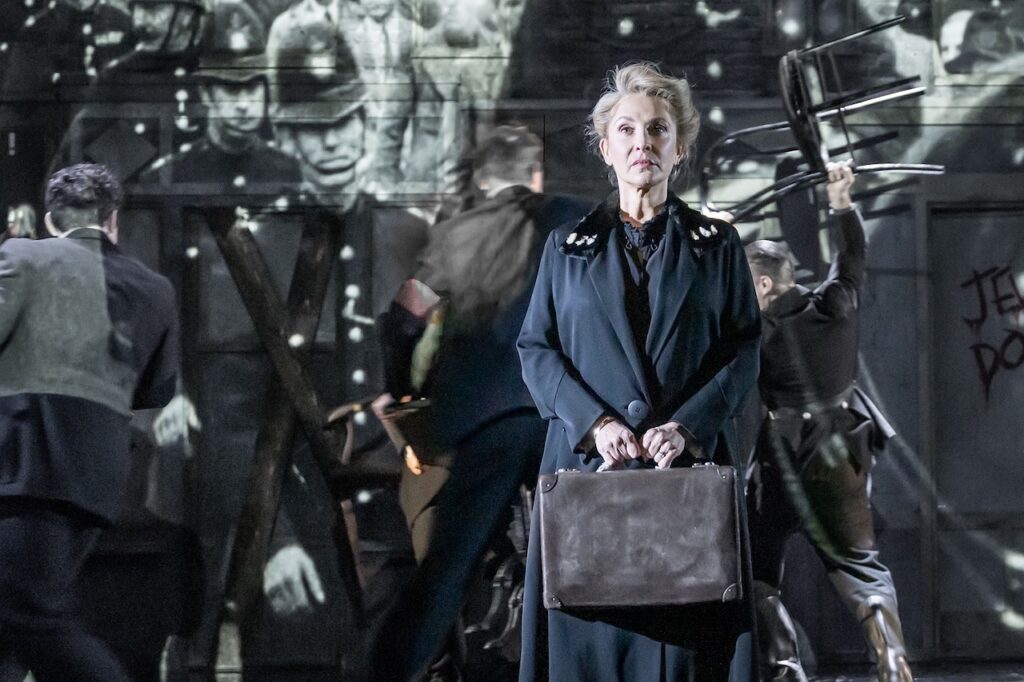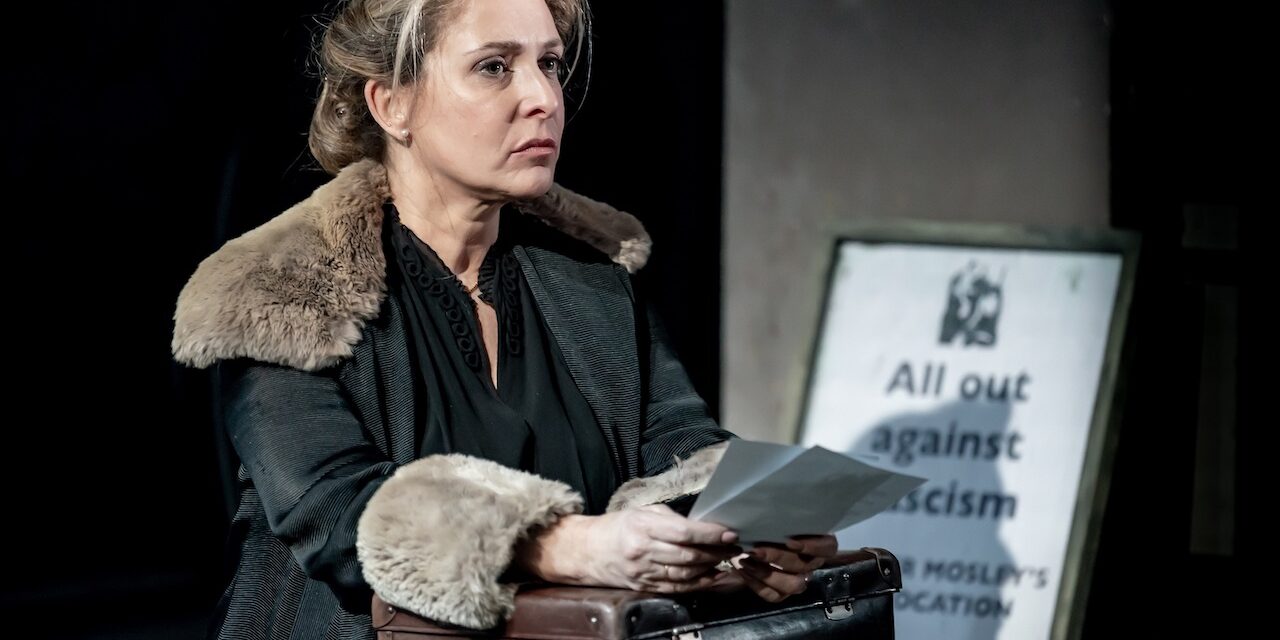
10 – 15 February
Shakespeare’s play The Merchant Of Venice is an unsettling play. The original plot chiefly concerns the tale of penniless Bassanio, who seeks the hand of the beautiful and wealthy Portia. To aid him, merchant Antonio borrows money from the Jew Shylock, light- heartedly undertaking to give him a pound of his flesh if he fails to repay the loan. He does fail, and Shylock demands that the gruesome debt be paid in full. Shakespeare gives Shylock a speech demanding that his humanity be recognised – ‘If you prick us, do we not bleed? – but his depiction of him as a ruthless moneylender has long contributed to an antisemitic stereotype, rendering The Merchant Of Venice in its original form deeply problematic.
With The Merchant Of Venice 1936 Tracy-Ann Oberman (Associate Director) and Brigid Larmour (Director) confront that problem head-on. This bold adaptation presents antisemitism as the main theme of the play, and Shylock as the central character. In 1936 Oswald Mosley’s British Union of Fascists organised a march through the East End of London, and that is where this adaptation is set with back-projected documentary film from that time punctuating the action. This is no romantic fantasy.
Here, Antonio, Bassanio and their friend Gratiano are English fascists, imbued with a sense of entitlement and inclined to over-confidence. Joseph Millson’s Antonio is dignified, though his distaste at having to borrow funds from Shylock is palpable. Gavin Fowler’s Bassanio is the most likeable of the three, a lovestruck youth who seems reluctant to join in the nastier displays of hatred. In contrast, Xavier Starr’s Gratiano is ill-disciplined and unashamedly vicious.
As Shylock, Tracy-Ann Oberman delivers a performance of power and subtlety. This gender-shift succeeds in heightening the unpleasantness of the treatment Shylock receives. There are times when it is hard to watch; seeing a group of powerful, privileged men call her ‘Jew’ and spit at her is stomach-turning. Wisely, Oberman does not give us a Shylock whose femininity serves to make her especially vulnerable or even likeable. Instead, we see a strong-minded businesswoman who has endured years of abuse, years which she has borne with stoicism but which have surely hardened her heart. In her final confrontation with Antonio we might wish her to be merciful, but we can at least understand why she is not.
Where does that darkness leave the more comic elements of the story? To win Portia’s hand suitors must choose which of three caskets contain her portrait. These scenes are undeniably amusing – Joseph Millson is a very funny Prince of Arragon – but they seem to belong in an altogether different play. However, Georgia Fellows’ carefully judged performance as Portia does much to draw these disparate elements together.

Looking every inch a high society lady of leisure, she resembles Mosley’s fascist wife Diana Mitford. When the Maharajah (Mikhail Sen) fails to choose the right casket her dismissive comment ‘Let all of his complexion choose me so’ brings a cold chill of racism to an otherwise comic scene.
The Merchant Of Venice 1936 is a project of personal significance for Tracy-Ann Oberman as her great grandmother was herself an East End Jewish matriarch in the 1930s. That personal involvement has given this adaptation an energy and conviction that makes it a particularly powerful piece of theatre. The closing moments take us to the barricades in Cable Street, where Eastenders defied Mosley’s fascists and stopped their march, bringing The Merchant Of Venice 1936 to a rousing conclusion.
★★★★☆ Mike Whitton, 11 February, 2025
Photo credit: Marc Brenner


